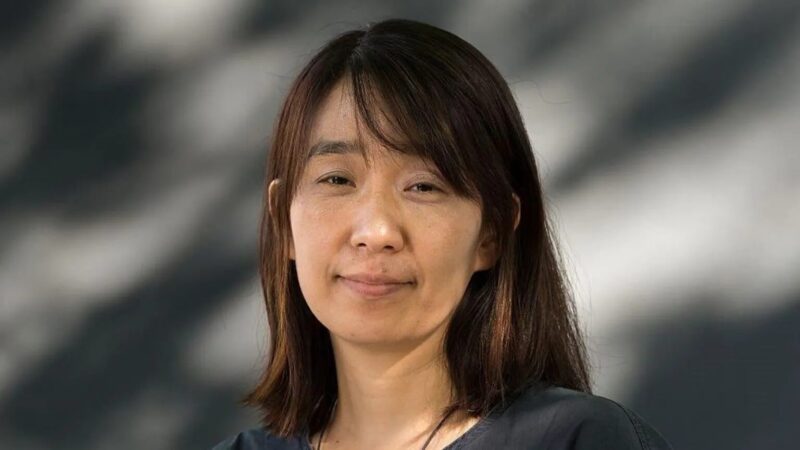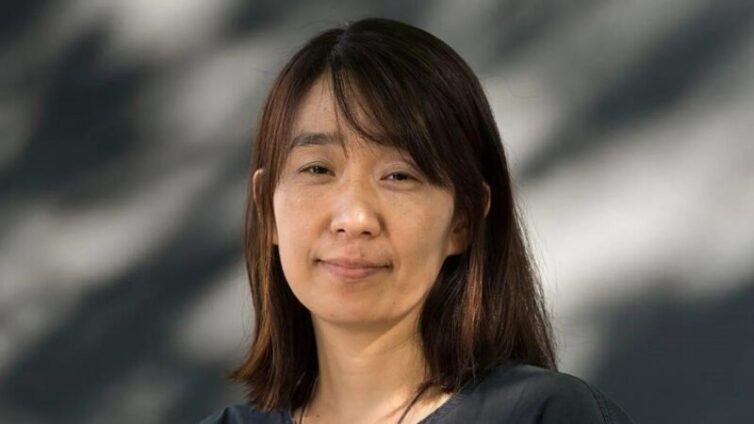South Korean author Han Kang has won the Nobel Prize in Literature.
The 53-year-old fiction writer is a former winner of the Man Booker International Prize for her 2007 novel The Vegetarian.
At the ceremony, she was praised “for her intense poetic prose that confronts historical traumas and exposes the fragility of human life”.
The Nobel Prize committee has awarded the literary award since 1901 and this marks the 18th time a woman has won the prize.
She has won 11m krona (£810,000) which is the amount awarded to each Nobel Prize winner this year.
Han is the first South Korean winner of the prize, who was described by the Nobel Prize board as someone who has "devoted herself to music and art".
The statement also added that her work crosses boundaries by exploring a broad span of genres - these include violence, grief and patriarchy.
A turning point for her career came in 2016, when she won the International Man Booker prize for The Vegetarian - a book which had been released nearly a decade before, but was first translated into English in 2015 by Deborah Smith.
It depicts the violent consequences for a woman who refuses to submit to the norms of food intake.
Han's other works include The White Book, Human Acts and Greek Lessons.
Swedish Academy permanent secretary Mats Malm said at the ceremony that "she wasn't really prepared" to win the prize.
Committee chair Anders Olsen also said she "confronts historical traumas and invisible sets of rules and, in each of her works, exposes the fragility of human life".

He praised her "poetic and experimental style", and called her "an innovator in contemporary prose".
The chair added she has "unique awareness of the connections between body and soul, the living and the dead".
Han is the first female recipient of the literature prize since 2022, when it was awarded to French writer Annie Ernaux.
She is also the first female Nobel laureate this year.
The prize is awarded for a body of work, rather than a single item - there is no shortlist and it is notoriously difficult to predict.
Han is the daughter of novelist Han Seung-won and was born in the South Korean city of Gwangju.
She moved to capital Seoul at a young age and studied Korean literature at a university in the city.
Her first published works were five poems in 1993, and she made her debut in fiction the following year with a short story.
Han, who has taught creative writing at the Seoul Institute of the Arts and is writing her sixth novel, has been published in more than 30 languages.
Last year's prize was won by Norwegian writer Jon Fosse, and previous winners include Toni Morrison, Doris Lessing, Kazuo Ishiguro, Gabriel Garcia Marquez and Bob Dylan.
Latest Stories
-
Queenmother calls on President-elect Mahama to appoint more women in his government
12 minutes -
Atletico Madrid beat Barcelona to go top of La Liga
30 minutes -
Usyk breaks Fury’s heart with points win in rematch
33 minutes -
Ghana-Russia Centre to run Russian language courses in Ghana
6 hours -
The Hidden Costs of Hunger: How food insecurity undermines mental and physical health in the U.S.
7 hours -
18plus4NDC marks 3rd anniversary with victory celebration in Accra
9 hours -
CREMA workshop highlights collaborative efforts to sustain Akata Lagoon
9 hours -
2024/25 Ghana League: Heart of Lions remain top with win over Basake Holy Stars
11 hours -
Black Queens: Nora Hauptle shares cryptic WAFCON preparation message amid future uncertainty
11 hours -
Re-declaration of parliamentary results affront to our democracy – Joyce Bawah
11 hours -
GPL 2024/25: Vision FC score late to deny Young Apostles third home win
11 hours -
Enhancing community initiatives for coastal resilience: Insights from Keta Lagoon Complex Ramsar Site Workshop
11 hours -
Family Health University College earns a Presidential Charter
12 hours -
GPL 2024/25: Bibiani GoldStars beat Nsoatreman to keep title race alive
12 hours -
GPL 2024/25 Bechem United keep title hopes alive with narrow win over FC Samartex
12 hours

